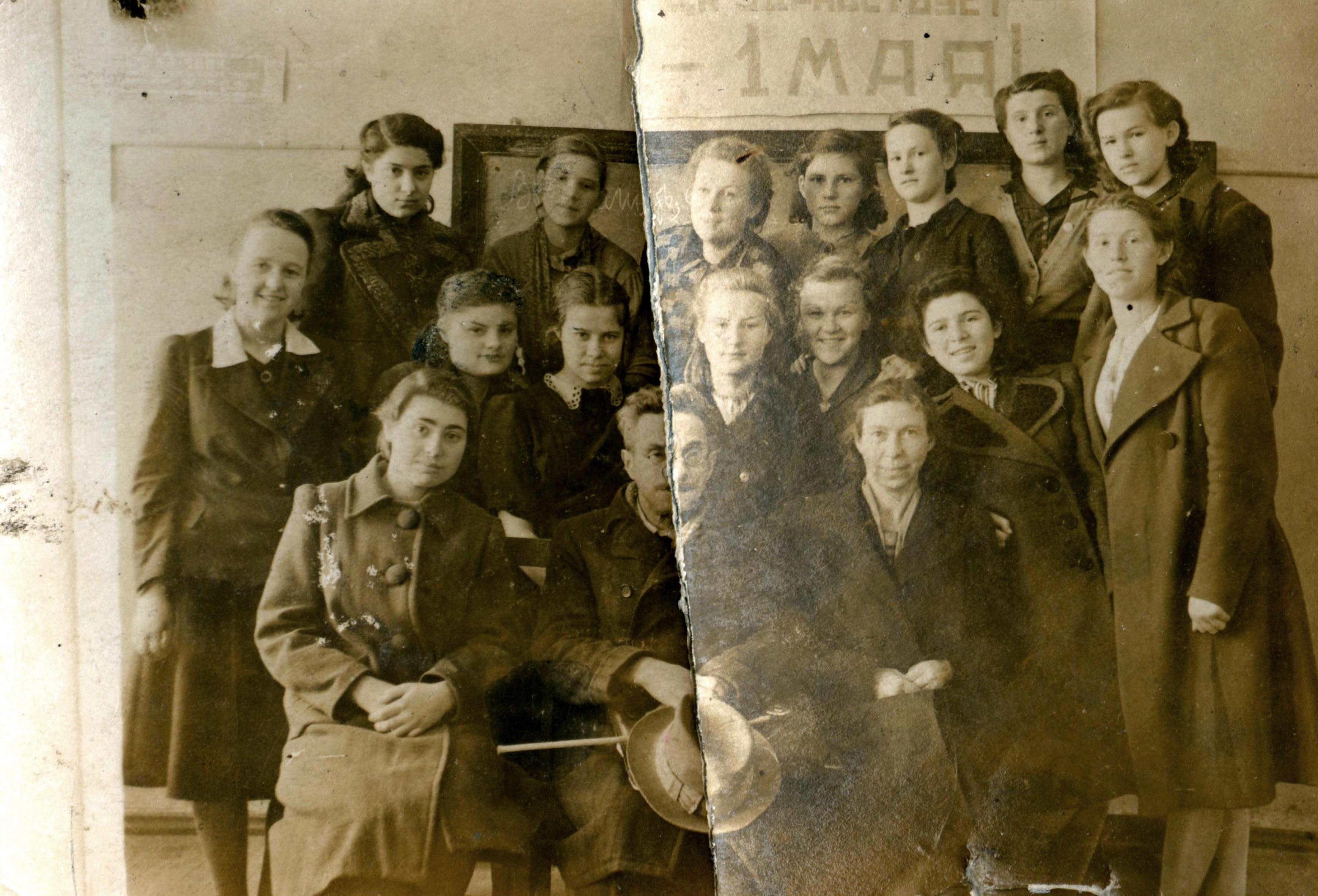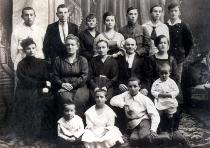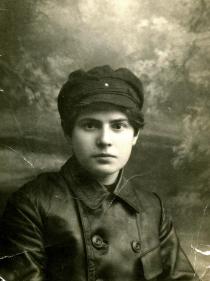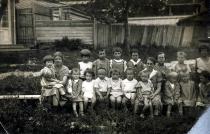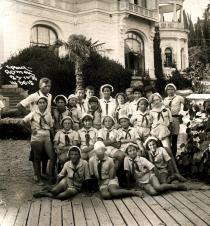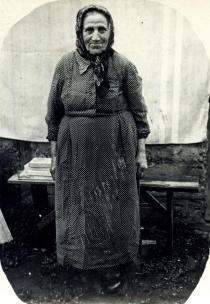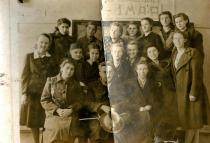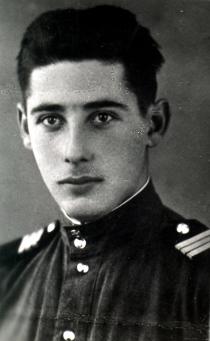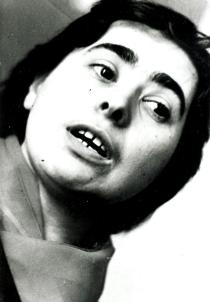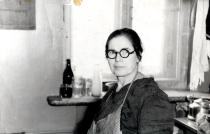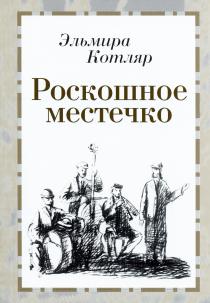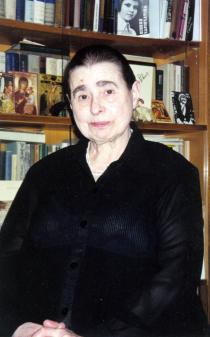The 9th form of my school. I am sitting the first from the left. We were photographed by a school photographer in Moscow in 1944 on the occasion of the end of an academic year in our classroom.
In june 1941 WWII began. I had no idea that there was to be a war. I was stupid and didn't understand anything. I understood that something terrible happened, but I didn't apply it to myself. Nothing was going to happen to me and my life could not be terrible.
The University where my mother studied evacuated to Sverdlovsk, about 1400 km east of Moscow and my mother and I went there, too. We didn't find any suitable accommodation in Sverdlovsk and my mother quit University and decided to go with me to the vicinity of Alapayevsk about 138 km north of Sverdlovsk, to Kostino village where my mother was teaching history.
My mother rented a corner in a village hut. Life was terrible there. There was only hunger. I didn't go to school since there was only a 7-year school in the village and I was to study in the 9th form. I was hanging around there.
There was a woman in evacuation in this village. She worked in a club before the war. She was a nice and tactful woman of about 60 years of age. She gathered young people into something like a drama club and we performed in surrounding villages. We didn't get anything for it, but we were at least busy.
People called us 'artists'. There was no entertainment in villages. There was a radio near the library in the village and there was no electricity. Our performances were like holidays for them. People had a very hard life in the kolkhoz.
Alapayevsk was a town near Sverdlovsk, there were many steel casting and military plants in it. We stayed in Alapayevsk for a year, but I didn't go to school. I was too weak from hunger. We rented a hallway in an overcrowded apartment. My mother taught history in a vocational school.
I worked as a tutor in a kindergarten for about 8 months. In 1943 we returned home to Moscow. There was nobody in our room, but it was looted and ravaged. Moscow was military and there were newspaper strips on windows and bulbs were painted dark blue.
We arrived and right away got under bombing. We also waited for news from the front every day. This was the most important thing for us. I remember my mother and I having 10 potatoes. They lasted 10 days: we had one half potato each per day. We boiled it and cut into halves and this made our meal. Nobody could help us.
In 1943 I went to work as a tutor in a kindergarten. I had finished the 9th form of district school #9 in Moscow. I didn't like it in this school after my previous school at the Conservatory. Our teachers had low qualifications and it was ridiculous how they conducted their lessons.
My mother knew my opinions and agreed that I should become a tutor in a kindergarten. I worked there 4 years. It was hard work, but I managed and children were good to me. There were 37 children in my group. It was a big group and besides, children of the war, they were problem children. Many didn't have fathers, they had dramatic living conditions and they were all hungry.
They were nervous and excitable children. In general, they made a hard company. While working in the kindergarten I finished a pedagogical school with honors and entered a Pedagogical College. I finished my college with honors. I worked a mandatory term in the kindergarten and then couldn't find a job for a long time until I managed to become a preschool education teacher at the Pedagogical School.
I began writing poems. At first I didn't think much of it, but then I caught myself sitting at an exam at school putting down my lines instead of listening to a student. This shouldn't be! I met young poets and we became friends and they told me that I had to quit school immediately. 'Or, you will always remain a teacher and will never become a poet'. I left school, though we didn't have anything at home. I found a job in a publishing house with low payment. In 1958 my first book was published and I received a small fee for it. So I lived.
